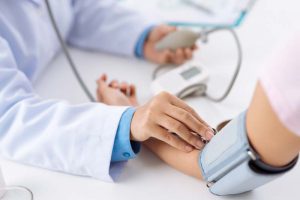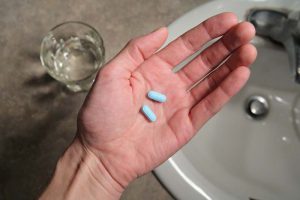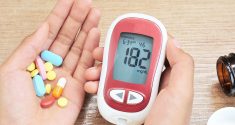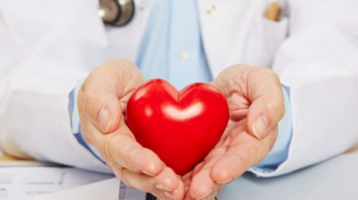Hypertension, or high blood pressure, and type 2 diabetes have been shown to be linked repeatedly in studies. While the lifestyle changes that treat these diseases are the same, such as improving diet and increasing exercise, there has yet to be a breakthrough in finding a drug that treats both. However, a new chronopharmacology study suggests that hypertensive medications given at certain times of day may be effective in preventing type 2 diabetes.
The Link Between Hypertension and Type 2 Diabetes
 People who have hypertension are more likely to develop type 2 diabetes, and vice-versa. These two diseases are part of an illness that health professionals call metabolic syndrome. When people have both of these diseases, they are at much higher risk of developing serious heart problems. High blood pressure can cause issues with circulation, while diabetes increases the risk of developing atherosclerosis, or hardening of the arteries.
People who have hypertension are more likely to develop type 2 diabetes, and vice-versa. These two diseases are part of an illness that health professionals call metabolic syndrome. When people have both of these diseases, they are at much higher risk of developing serious heart problems. High blood pressure can cause issues with circulation, while diabetes increases the risk of developing atherosclerosis, or hardening of the arteries.
It is important to approach the different illnesses involved in metabolic syndrome as a package, working toward whole body health. Because diabetes and hypertension affect so many people and are both linked intricately with the circadian rhythm, they have become a popular field of study for circadian biology researchers.
Circadian-Based Treatment of Metabolic Syndrome
While high blood pressure and type 2 diabetes are clearly linked, treating hypertension has not been shown to prevent or treat diabetes. This is unfortunate because managing both illnesses can be time-consuming, exhausting and require expensive daily medications. Preventing diabetes is the best treatment, which is why chronobiology researchers were pleased to discover that taking blood pressure medication at a certain time of day markedly lowers diabetes risk.
Chronobiology researchers studied over 2000 people with hypertension who took their medication at different times of the day. While the time of day did not affect the effectiveness of the medication in lowering blood pressure, they found that it did appear to affect diabetes risk. People who took their antihypertensive medication in the evening were far less likely to develop type 2 diabetes.
The Timing of Antihypertensive Medication
Most physicians recommend that patients take blood pressure medication in the morning. Because hormones associated with wakefulness such as cortisol raise blood pressure, hypertension tends to be more severe in the morning hours. However, people who took their blood pressure medication at night actually have lower blood pressure throughout the day and a lower amount of fluctuation in blood pressure. In addition, these people are 65 percent less likely to develop type 2 diabetes, which leads to greater health and lower risk for a serious cardiovascular disease.
Dippers and Nondippers

Is there any downside to taking antihypertensive medication at night? Researchers and physicians have yet to find one. Not only is this medication more effective when taken before bed, but it is more likely to help nondippers, who are the hardest to treat. In addition, it gives patients a lower risk of developing type 2 diabetes, with all of the risk factors that come with this. Patients who take antihypertensives may now be able to lead healthier and longer lives due to this new and exciting study.







